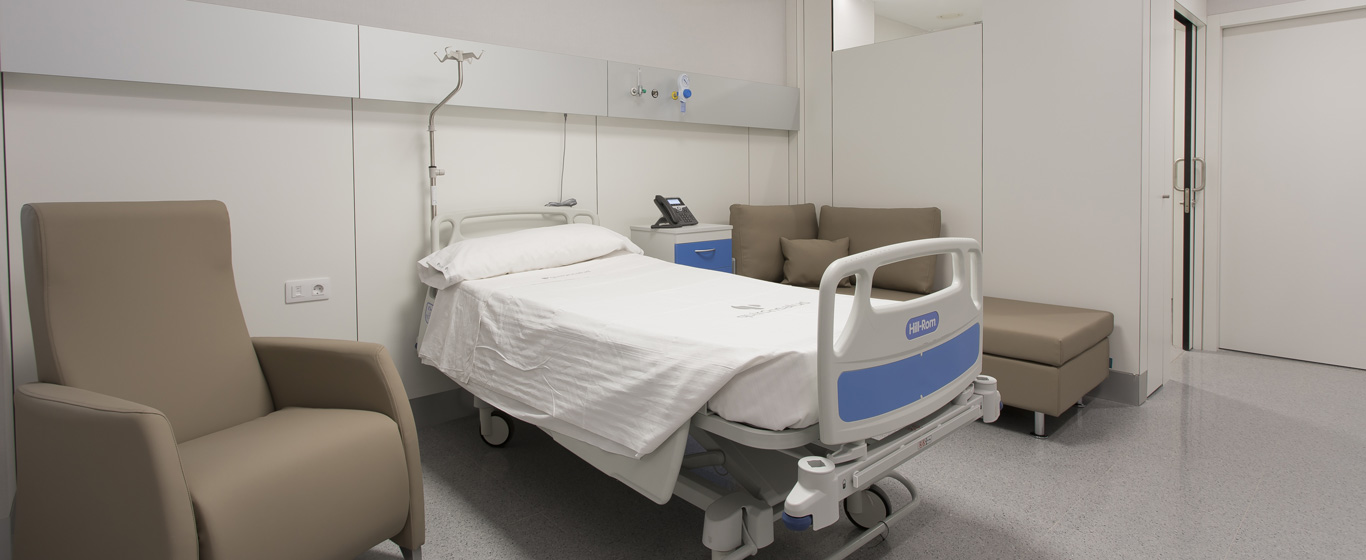Pneumonia
What is pneumonia? Everything you need to know about its causes, symptoms, and the main treatments for the different types that may occur.
Symptoms and Causes
Pneumonia is a lung infection that can affect one or both lungs (bilateral pneumonia), which often fill with fluid or pus. This disease can be caused by various microorganisms, including viruses, fungi, or bacteria.
Depending on the affected area of the lungs, pneumonia is classified into three different types:
- Lobar pneumonia: The infection spreads throughout an entire lung lobe.
- Bronchopneumonia: The disease affects the alveoli.
- Interstitial pneumonia: It impacts the interstitial lung tissue.
The classification of pneumonia based on how a person contracts the disease includes:
- Community-acquired pneumonia: The most common type, typically contracted by inhaling germs found in the throat, mouth, or nose. It develops outside a hospital or any other healthcare facility.
- Hospital-acquired pneumonia: Contracted during a hospital stay for another condition. Patients on ventilators have a higher risk of developing it. This type of pneumonia is severe because it affects already ill individuals and is caused by germs that are more resistant to antibiotics.
- Aspiration pneumonia: Occurs when food, beverages, or saliva are inhaled into the lungs.
Symptoms
Pneumonia symptoms can vary from person to person, regardless of the type of disease they develop. Typical pneumonia is characterized by:
- Productive cough with purulent or blood-tinged phlegm.
- Chest pain.
- Fever with chills.
In cases of atypical pneumonia, symptoms appear gradually and include:
- Mild fever.
- General discomfort.
- Fatigue.
- Gastrointestinal symptoms such as nausea, vomiting, or diarrhea.
- Difficulty breathing.
Causes
Pneumonia is caused by the invasion of the lungs by a germ. These infectious agents can be bacteria (bacterial pneumonia), viruses (viral pneumonia), or fungi (fungal pneumonia). In some cases, pneumonia results from the aspiration of vomit, saliva, liquids, or food into the lungs during swallowing.
Risk Factors
Several factors increase the risk of developing pneumonia, including:
- Age: Children under 2 years old and adults over 65 are more susceptible.
- Hospitalization: Particularly for patients requiring a ventilator or ICU stay.
- History of stroke, brain injury, or swallowing disorders: Increases the risk of aspiration pneumonia.
- Chronic illness.
- Smoking.
- Weakened immune system.
Complications
Some pneumonia patients, especially those at risk, may experience complications such as difficulty breathing, bacterial infection in the bloodstream affecting multiple organs, fluid accumulation in the pleura (pleural effusion), or pus buildup in the lungs (lung abscess).
Prevention
Although pneumonia cannot always be prevented, reducing the risk of contracting it is possible. Therefore, flu and pneumococcal vaccination is recommended for high-risk individuals, such as infants, people over 65, or those with chronic illnesses.
People with asthma, chronic bronchitis, or bronchiectasis should seek medical attention at the onset of respiratory infection symptoms to start antibiotic treatment early.
Which Doctor Treats Pneumonia?
Pulmonologists, family physicians, geriatricians, emergency medicine specialists, and internists are responsible for treating pneumonia.
Diagnosis
To diagnose pneumonia, doctors perform various tests, including:
- Medical history and physical examination, which includes listening to the lungs.
- Blood tests to determine the nature of the disease.
- Chest X-ray to locate the infection and assess its severity.
- Pulse oximetry to measure blood oxygen levels.
- Sputum test to identify the cause of pneumonia.
Treatment
In most cases, pneumonia treatment can be managed with home rest, and hospitalization is only necessary for severe cases or high-risk individuals. Medications to cure pneumonia and prevent complications include:
- Antibiotics to treat bacterial pneumonia. Additional tests are not usually conducted to determine the specific microorganism responsible, and generic drugs are used unless resistance is observed after several days of treatment.
- Cough suppressants only to facilitate rest.
- Antipyretics to reduce fever.
- Pain relievers to alleviate discomfort.



































































































